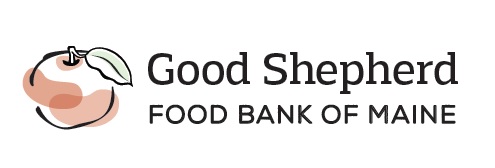Have you heard about Good Shepherd Food Bank’s newest program? The Community Health and Hunger Program is bringing together the worlds of healthcare and hunger relief to address growing concerns around the impact of food insecurity and poor nutrition on health.
 The connection between food insecurity and poor health is clear. Over the past few years, researchers across the United States have found that poor nutrition associated with lack of access to healthy meals increases an individual’s risk of developing chronic illnesses such as type II diabetes, hypertension, cardiovascular disease, osteoporosis, and can negatively affect mental health.[1] Food insecure households are forced to adopt coping mechanisms that not only increase their chances of developing a chronic condition but also impact disease management. In our 2014 Hunger in Maine Report, we found 67% of households living with food insecurity reported purchasing more affordable but less nutritious meals just to have enough, and 65% of households served by our network are making tough decisions between food and medicine.[2]
The connection between food insecurity and poor health is clear. Over the past few years, researchers across the United States have found that poor nutrition associated with lack of access to healthy meals increases an individual’s risk of developing chronic illnesses such as type II diabetes, hypertension, cardiovascular disease, osteoporosis, and can negatively affect mental health.[1] Food insecure households are forced to adopt coping mechanisms that not only increase their chances of developing a chronic condition but also impact disease management. In our 2014 Hunger in Maine Report, we found 67% of households living with food insecurity reported purchasing more affordable but less nutritious meals just to have enough, and 65% of households served by our network are making tough decisions between food and medicine.[2]
The impact that food insecurity has on poor health is a growing concern among patients, healthcare providers, and the public health community. With the highest rate of food insecurity and chronic illness (type II diabetes, hypertension, and obesity) in New England, it’s clear that we need to explore new ways to connect community members with our ending hunger network in Maine.[3]
The Community Health and Hunger Program is partnering with healthcare providers across Maine so together we can better identify and remove barriers for Mainers who lack access to nutritious food. We are working with over 35 healthcare providers to help connect patients to ending hunger resources and provide emergency take-home meals at the healthcare site.
An essential element to the program is the successful connection to local ending hunger resources. We have found that many patients are unfamiliar with the local food pantry or community meal site or may not know all the great things that our food pantries have to offer. In a survey of patients that participated in the program last year, over 50% reported an increased knowledge of the local emergency food programs after visiting their doctor's office and nearly 60% reported visiting a local pantry as a result of the program. In partnership with our food pantry network, our healthcare partners have connected over 1,400 patients to the nutritious meals they need to live healthy lives.
In addition to connecting patients to the local food pantries, we have found that connecting our healthcare partners to our agencies is a great way to support established ending hunger work and connect food pantry clients to health services. Our healthcare partners can often offer medical screening services for pantry clients that may not have access to traditional healthcare services, volunteer support for food pantries or meal sites, and support as advocates for the food pantries and ending hunger programs in their communities.
[1] Christian A. Gregory, Alisha Coleman-Jensen. Food Insecurity, Chronic Disease, and
Health Among Working-Age Adults, ERR-235, U.S. Department of Agriculture, Economic
Research Service, July 2017.
[2] Hunger in America 2014: Report for Good Shepherd Food Bank, Feeding America, August 2014. http://www.gsfb.org/wpcontent/uploads/2014/10/FB259_report.pdf.
[3] "Maine County Health Rankings". 2017. County Health Ranking and Roadmaps. http://www.countyhealthrankings.org/app/maine/2017/overview.


